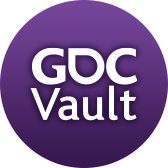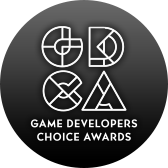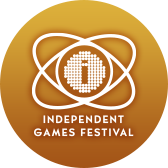| January 2015
In This Issue:
- Intel - Christos Georgiopoulos, VP, Software & Services Group and GM, Developer Relations Div. at Intel, reveals the cool game technology it is delivering by working with the top game engine vendors, and what will be hot at Intel's eight GDC 2015 sessions.
- Epic - Ray Davis, general manager, Unreal Engine at Epic, talks about Unreal Engine 4's new subscription model, the Unreal Engine Marketplace, and what visitors to Epic's booth at GDC 2015 can expect to see.
- Sungame - Guy Robert, COO of Sungame, talks about its World 3Developer Challenge and how GDC 2015 visitors will be able to try out and vote for the winning 3D games and apps, and also crowd-fund their own 3D programs.
 |
 Christos Georgiopoulos | Christos Georgiopoulos, VP, Software & Services Group and GM, Developer Relations Div. at Intel, reveals the cool game technology it is delivering by working with the top game engine vendors, and what will be hot at Intel's eight GDC 2015 sessions. |
Q: Christos, Intel seems to be doing some cool things now with the top game engines, meaning Unity and UE4. Can you give me some specific examples?
Christos Georgiopoulos: Yes! We are excited to be working closely with all of the game engine vendors, including Epic and Unity, to deliver some very cool game technology and performance improvements on x86 platforms powered by Intel processor graphics. By working with these game engine developers, we make the benefits of x86 and Intel processor graphics accessible to millions of game developers and consumers worldwide.
We've partnered with Unity on Windows x86 support for many years, and we are very excited to bring native x86 Android optimizations to the Unity game engine beginning with last November's Unity 4.6 release. These optimizations are now available by default to all Unity developers for new projects and it's trivial to re-export an existing project and add x86 support. Intel is now the largest supplier of Android tablet processors, so this enables Unity developers to reach a larger number of devices and consumers.
Some of the benefits game developers have already been achieving using the Unity game engine include dramatic improvements in their Android apps running on devices with Intel Architecture -- faster performance, improved load times, and better power usage -- all from simply ensuring x86 native support is selected and from exporting the project again. Jumpstart, for instance, achieved a 146% improvement in the frame rate for School of Dragons by enabling native x86 support (see the write up here plus a few case studies on our Web site here). In order to get the word out, Unity and Intel collaborated on a number of developer events and marketing opportunities in 2014. We are working on even more technical improvements and additional developer activities in 2015.
We are just as excited about the great, long-time partnership with Epic and how Intel and Epic engineers worked together to deliver a number of additional capabilities to Epic's Unreal Engine 4. Android developers can easily build native x86 Android applications and PC developers can easily support tablet/touch user interfaces and clamshell/keyboard transition (aka 2-in-1 support), as well as further advances in significantly faster texture compression (BC6H and BC7) to increase the content productivity pipeline. Additional benefits for UE4 developers include state-of-the-art threading and memory allocation source code with Intel's Threading Building Blocks, and additional instrumentation of UE4 to enable developers using Intel's Graphics Performance Analyzers to more easily debug graphics issues and better understand the workings of their engine. More advancements are underway now, including DX12 and Intel compiler support, and we expect to continue our strong partnership throughout 2015.
Q: Intel is sponsoring eight different sessions at GDC. Which are the most exciting and what can devs look forward to learning from them?
Georgiopoulos: Our technical sessions are shaping up to be the best ones we've ever offered at GDC. Using a best practice we learned from the SIGGRAPH conference, a must-attend session is our leadoff Intel Fast Forward session where we cram the highlights of each and every Intel session, presentation, and demo at GDC 2015 into one short session. This is a great way to quickly get a taste of the breadth and depth of Intel's offerings at GDC, enabling attendees to decide which of these talks and demos are of most interest to them.
Although we are still shaping the final slate of presentations, we are planning to showcase Intel optimization work done with notable ISV partners such as Blizzard and Square Enix. We work with many leading game developers to help them incorporate unique Intel features or bring out the full performance or power efficiency of systems built on our processors. At GDC, we plan to show other developers how we worked with Square Enix to add performance-boosting native x86 support to Hitman Go. With Blizzard as a co-presenter, we will be sharing how we used unique Intel graphics extensions to add post-processing effects to Blizzard's World of Warcraft expansion Warlords of Draenor. These are exciting, practical techniques implemented by top game developers on their biggest titles and we are honored to share these so that other developers can use and benefit from them.
We are also expecting to present material that highlights the new features and capabilities of the latest versions of the graphics APIs, DirectX, and OpenGL/ES on our latest hardware. As you are likely aware, Intel partners with the game development community to ensure that these industry standards represent the developer needs for higher-quality graphics techniques, better performance, and battery utilization. Gone are the days when Intel was a laggard for API support. We are now showing that we are releasing drivers that support the newest API versions as soon as the specifications are ratified, and we will have talks that address power-efficient programming, OpenGL ES 3.1 and the Android Extension Pack, and Intel's latest graphics extensions.
Q: Are you planning anything else for GDC that would interest our readers?
Georgiopoulos: If you want to see where games are heading, you should plan on attending the Intel University Games Showcase at GDC. We did this event for the first time last year and it was a huge success. We brought together student game developer teams from the leading academic programs and had them pitch their games to an all-star panel of judges and to a large crowd of people. Last year's entries were amazingly engaging and high quality, and we're expecting even better projects this year. The participants are expected to include USC, SMU, Digipen, Drexel, RIT, CMU, Drexel, University of Texas, University of Central Florida, University of Utah, and NYU, all of whom offer compelling graduate-level programs in game development.
We are trying a couple of new things this year, too. We'll have an Intel Tech Lab at GDC. This is a great way for developers to get a little technical assistance from Intel engineers or to learn how to use our graphics performance analysis tools. If you're a game developer who wants to know how to make your game run better on Intel platforms, all you need to do is stop by our main event location in South Hall lobby and make an appointment. Our engineers can help you try your game on our latest platforms, give you some tips on performance or power optimization, and answer your technical questions.
We're also planning to have a variety of scheduled but informal meet-ups. We'll be publicizing the list of topics and times, and people can just show up at the Intel meet-up area in South Hall lobby. We plan to offer meet-up sessions covering a wide variety of topics, including adding x86 support to Unity apps, volumetric rendering, power optimization, Q&A sessions with our technical session presenters, demo deep dives, UE4 and x86, and much, much more.
Q: Intel is always a big sponsor of GDC. Why is the conference such an important part of your marketing strategy?
Georgiopoulos: We want both game developers and game players to have the best experience on Intel platforms. We view game developers as critically important for Intel because games drive consumer demand and are always in the top three use cases for all platforms. There is no question that games can drive sales of consumer computing devices.
GDC is a unique conference that brings together the worldwide leaders in the game developer segment as well as thousands of practitioners. This audience is perfectly aligned with our game developer outreach efforts. Therefore GDC is a great place for us to meet with game developers, help them learn about the benefits of Intel tools and technology, and work with them to extract the full potential of Intel platforms for the games they create.
 Ray Davis | Ray Davis, general manager, Unreal Engine at Epic, talks about Unreal Engine 4's new subscription model, the Unreal Engine Marketplace, and what visitors to Epic's booth at GDC 2015 can expect to see. |
Q: Ray, back at GDC 2014 in March, you released Unreal Engine 4 through a new subscription model. Anyone can now pay $19 a month plus 5% of gross revenue resulting from any commercial products built using UE4. That's quite a change from Epic's previous policy of charging AAA devs millions of dollars for the engine. How have devs reacted and what has the new subscription model accomplished?
Ray Davis: Offering Unreal Engine 4 through a subscription model has opened up the engine to a huge number of developers who have already built some impressive and creatively diverse projects. By also including the C++ source for the engine in the subscription, we've seen a large number of significant community contributions that we've been able to integrate for future releases. Overall, the journey over the last year has been fantastic and has presented great opportunities to grow a thriving UE4 development community.
Q: In September, you launched the Unreal Engine Marketplace. Tell me how that works and what it does for devs.
Davis: With the Unreal Engine Marketplace, we're aiming for high-quality content for developers to share, sell, and purchase. We believe it's more important to offer a curated selection of assets that are built with consistency and that are easy to integrate with any other assets offered on the Marketplace. As a game builder, it's rare that you only need a single model in a style to successfully build your project, so we make sure every asset pack includes 5+ models, and that they're built in a modular way so that you can easily combine them with other content. Already we're seeing a lot of great progress in our efforts here, and we'll be continuing to expand the Marketplace significantly in the coming months.
Q: I understand that, as part of your new education initiative, you've released UE4 to schools and universities for free. What's the initiative all about ... and how are schools utilizing UE4?
Davis: We've made the engine free to educators and students alike in the hopes of better integrating UE4 into their curriculum. Every day, there are more and more students interested in game development, and we think UE4 is one of the best tools to help students learn the skills they need to be successful game creators. Many other educational disciplines, such as architectural visualization, are also finding value in UE4's photorealistic rendering capabilities, and we're excited to continually find new ways to be involved in those efforts.
Q: As a GDC 2015 sponsor, you'll be having quite a sizeable booth at the show. What can visitors to the booth expect to see -- and learn? What will be some of the takeaways?
Davis: At the Unreal Engine booth, we'll have a mix of developers showcasing content they've built with Unreal Engine 4 along with some content demos built by Epic. Our hope is that anyone visiting our booth will gain a good understanding of the wide diversity of projects that are possible with our technology -- from hobbyist game development all the way to professional visualization. We also hope to have a surprise or two, that may or may not be related to VR.
 Guy Robert | Guy Robert, COO of Sungame, talks about its World 3Developer Challenge and how GDC 2015 visitors will be able to try out and vote for the winning 3D games and apps, and also crowd-fund their own 3D programs. |
Q: Guy, I know Sungame is the organization behind Freevi which has two distinct products the FlightDeck.tv content management and discovery platform and the Vidirectory.com business directory service. For devs who aren't familiar with Sungame or its products, can you give them a little insight into what's hot at Sungame these days?
Guy Robert: Yes, as you say, Sungame is the organization behind Freevi, the manufacturer of the FlightDeck, the world's most innovative 3D (stereoscopic) tablet. For developers, we are launching our 3D developer tools and SDK, and also announcing exclusive news at GDC about our new platform, an exciting new ecosystem that targets returns from the tablet via distribution and content creation. You can get more information on our Web site or follow us on all social media channels at @freevi3D #W3DC
Q: At GDC/Next in November, you invited devs to participate in a World 3Developer Challenge by submitting a product to your No-Glasses 3D tablet. Winners in 12 categories were awarded a total of $25,000. What did you hope to achieve with the Challenge and what was the outcome?
Robert: That's correct! In November, we launched our World 3Developer Challenge at GDC/Next (see #W3DC and @freevi3D on Twitter) and the response was incredible. Our objective was to communicate #W3DC to all game developers attending, demonstrate the FlightDeck, and introduce the incredible ROI opportunities associated with submitting a proposal to create content for our team to review.
Naturally, we have had an incredible response to the challenge and are now working through the 100 accepted proposals from game developers looking to participate in our challenge by building or porting new or existing games and apps for submission to our FreeviNation community. We will be announcing the finalists of our World 3Developer Challenge at GDC 2015 and will be offering GDC visitors the opportunity to experience first-hand the finalists' apps and games running on our tablet and then vote for their favorite game or app.
For those Unfunded Freevi-Nation Citizens who didn't make the short list, there will also be an opportunity for each developer to crowd-fund within our ecosystem. As a result, everyone has a chance!
Q: Freevi is a Gold Sponsor of the Independent Games Festival (IGF) and a sponsor of its Choice Nominee Reception. Why is that important to you and what do you hope to achieve by being a sponsor?
Robert: Our goal is very simple. We are passionate about indie game development and about providing the tools, processes, simulators, hardware, distribution, and community to grow and pioneer stereoscopic 3D game development. We are here to communicate this opportunity to the people who matter most talented game developers!
Q: You�ll have booth space at GDC 2015. Why should devs want to visit you there? What can they hope to learn by showing up?
Robert: By coming to our booth, developers will have the opportunity to try the FlightDeck tablet first-hand and then experience some of the content already created by our #W3DC finalists. They will also be able to:
- Discuss with our technical team how to get started on the platform by purchasing a tablet and understanding the revenue opportunities of joining our nation as a Citizen.
- Learn how to crowd-fund their first 3D app or game.
- Learn how to get started and create an application via Unity or OpenGL by accessing our SDK.
- Test out the W3DC finalists' submissions and vote for their favorite game or application via our Web site.
All I can say is we're so excited!




